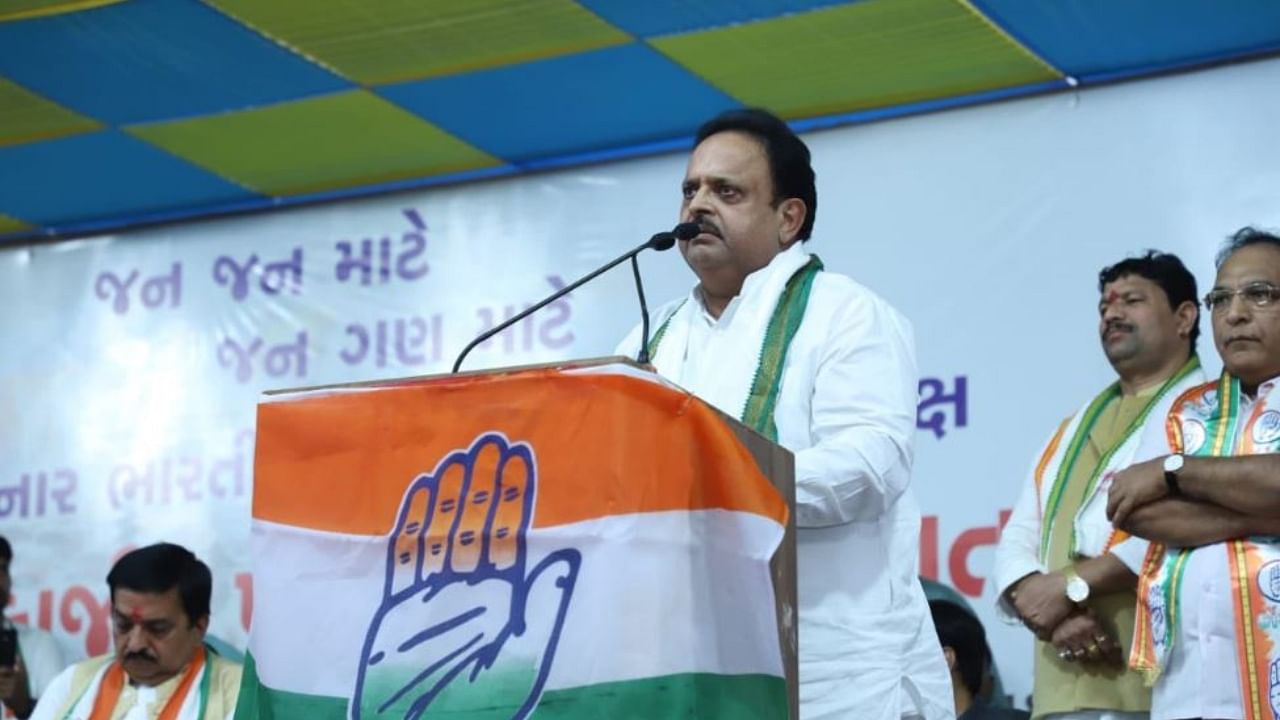
The polling for the Gujarat Assembly elections will take place in two phases, on December 1 and 5. Gujarat in-charge for the Congress, Raghu Sharma, in an interview with Tabeenah Anjum, shares how Congress is trying to change the perception in Gujarat where the ruling party BJP has been in power for over 27 years.
What is the roadmap of the Congress party for assembly polls in Gujarat?
We are taking our eleven promises door to door in Gujarat. Our road map strongly believes in improving employment, schemes guaranteeing employment generation, efforts to stop corruption, scaling up health infrastructure and strengthening social security.
In 2017, Congress managed a 41.5 per cent vote share - the highest in the last 27 years. What is your prediction for this year?
In 2017, there was no AAP in Gujarat. It was a direct fight between the Congress and the BJP. But this time, I am sure Congress will have a better vote share.
How is AAP's presence affecting Congress in Gujarat?
Aam Aadmi Party is not winning a single seat in Gujarat. Their CM candidate is also coming in the third position. We have repeatedly been telling voters in our sabhas that AAP and AIMIM have come to Gujarat not to form a government but to cut votes. And we are still unsure if they will affect BJP more or the Congress in the coming polls.
Also Read | Voting begins for 1st phase of Gujarat Assembly polls; 89 seats up for grabs, 788 candidates in fray
In 2017 Congress performed better in rural Gujarat. What is your analysis for the coming polls?
Last time, we performed poorly in urban areas. But this time, we are focussing on rural, urban and tribal areas.
The Congress has yet to project any CM face for the Gujarat elections.
It's been a policy and tradition of Congress not to project any CM face, especially where it is in the opposition. In Gujarat, it is a collective fight.
In the last few years, several Congress leaders joined the BJP, including Hardik Patel.
Hardik's joining the BJP is no loss for Congress. The party gave him lots of attention and hype. He chose to join the BJP, which has given him a ticket. But he is not counted as any of the prominent leaders there.
Do you think if the Bharat Jodo yatra led by Rahul Gandhi had entered through Gujarat, would it have made any impact?
The Bharat Jodo Yatra may not have directly entered Gujarat, but lakhs of people have joined it, which has also impacted here. The yatra is more focused on the situation in the country instead of just election-bound states. It didn't enter Himachal Pradesh but is sticking to its original route. At the same time, Rahul Gandhi has been attending public rallies and meetings across Gujarat. Besides him, sessions conducted by senior Congress leaders, including Digvijaya Singh, Ashok Gehlot and several others, have drawn much attention.
The BJP has been ruling Gujarat for the last 27 years. How are you going to change the perception of this election?
The BJP keeps claiming that the double-engine government works best for the development of any state. Still, in Gujarat, issues such as illicit liquor trade, question paper leaks, and poor infrastructure of healthcare facilities are at their peak. In Gujarat, there are either financially rich or economically poor. There is no space for the middle class. In the last five years, the BJP changed their CM twice. The government there has been a remote-control government. And it has failed at every level. The agriculture community, tribals, Dalits and the minority have suffered the most.
What has been your biggest challenge after you joined the party in charge? What is your takeaway?
I brought all factions together, and we are working as a team. There is no big rift in the party, and everyone is putting their best to win the elections. We should cross 125 seats.
(Tabeenah Anjum is a Rajasthan-based freelance journalist)